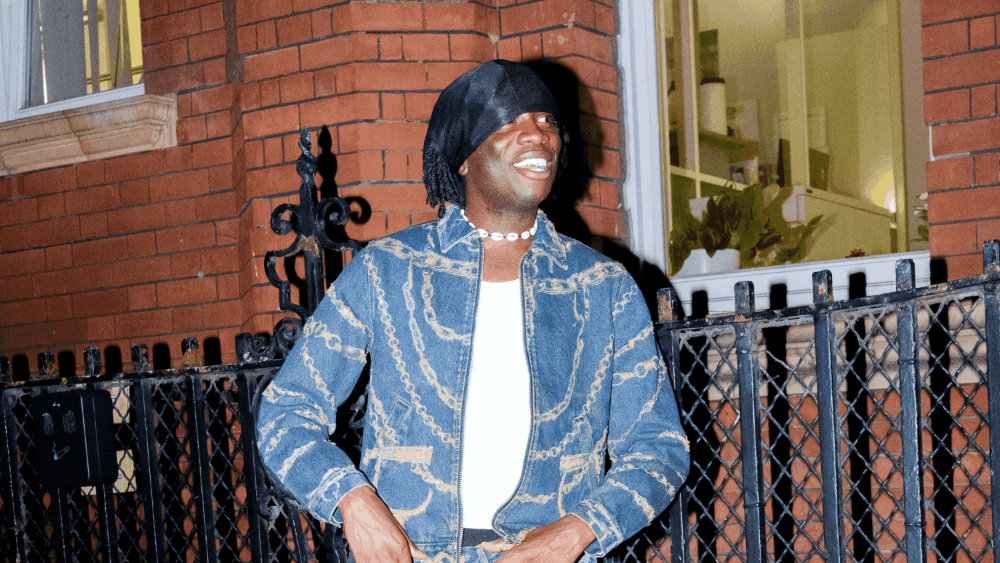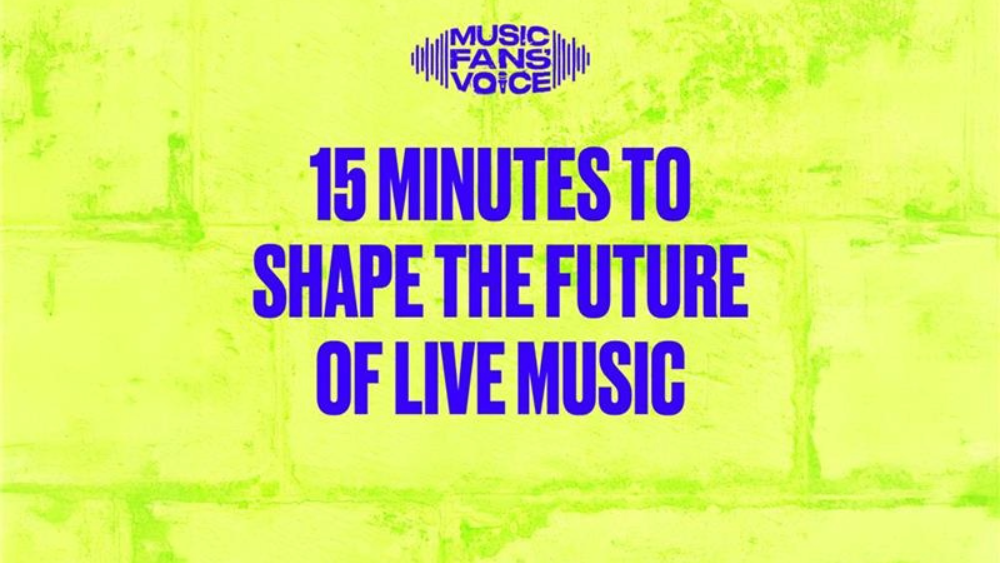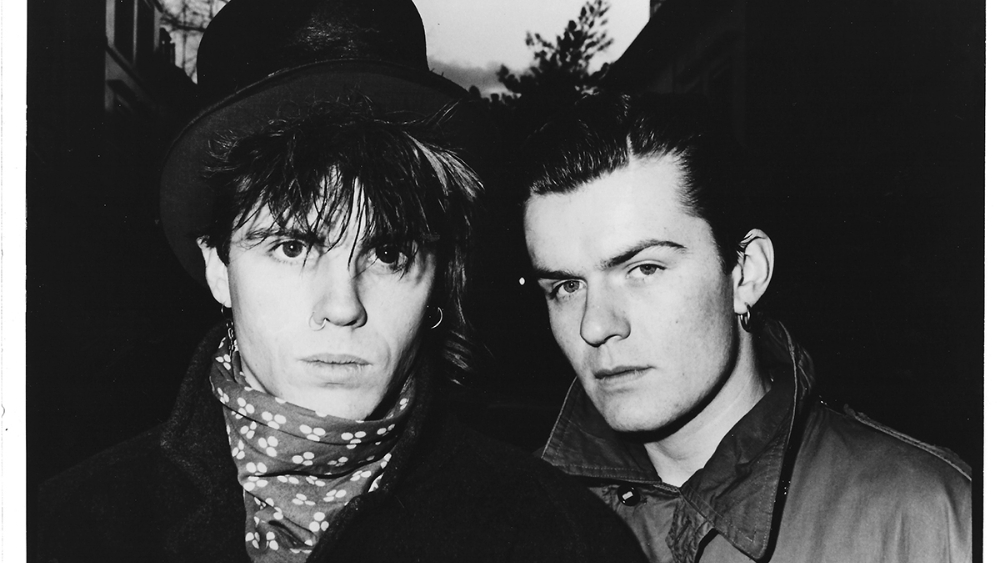Back in February, spoken-word artist Antony Szmierek released his debut LP Service Station At The End Of The Universe — a gleaming, ambitious concept record about spiralling through the tribulations of love, loss and grief, and ultimately accepting the impermanence of life. Having already become a revered figure on the touring circuit, Antony’s album has resonated with listeners seeking solace in these increasingly troubling times; his conclusion seems to be that hope is worth fighting for.
The main source of Antony’s star power is his live shows, which aim at the feet and the heart equally. As his much talked-about sets at Glastonbury and new music showcases such as The Great Escape and Sŵn in 2024 showed, the Mancunian has a songbook full of exuberant choruses, with moments of on-the-spot poetry that feel akin to a fireworks display of creativity and joy. Simply put, you’re guaranteed to leave the pit with a grin on your face.
With influences that range from ‘00s hip-hop to pop and British indie greats, Antony’s wide-ranging approach bleeds into his stage presence, which is filled with generosity and spirit. Back in March he flew out to SXSW in Austin, Texas to make his US live debut — funded by a grant from BBC Introducing and PRS Foundation — before returning to the UK to embark on a run of headline shows, including a sold-out night at his hometown’s Albert Hall.
With his tour now extending into Europe and a summer filled with festival appearances, M caught up with Antony for the inaugural edition of our new On The Road series to hear, in his own words, what it's like to grow and thrive as a live act in 2025.
‘Travelling to Austin and performing at SXSW was life-changing. I think there was a weird sense of anticipation on the plane there [from London], as many of us artists who had received funding wound up sitting together. I would find myself peeking over seats and thinking, “What’s corto.alto watching on the TV there?”, or I’d turn around and spot Jasmine.4.t, and we’d wave at each other.
‘I’d never been to the US before heading to SXSW, nor had my band. None of us! It was pretty mad knowing that the music I made at home — so much of which is specific to a time or location — was going to be performed live all the way out in Texas. There was definitely a sense of all of us artists feeling the excitement and thinking to ourselves, “How did we get here?”
‘We played to nearly entirely American crowds. They were all amazing. I think before performing in the States, you can get stuck in your head and your own perceptions; I was trying not to mention line dancing whenever it came to crowd participation. We played at this dive bar one night, which was great — it felt like being in a film. I think I was worried about some of the niche references in my music: for instance, I thought that singing about the Stockport Pyramid would be lost on some people!
'At SXSW, there was definitely a sense of all of us artists feeling the excitement and thinking to ourselves, “How did we get here?”'
‘I think people have different ideas about what SXSW is going to be. Some artists, for example, will aim to get a US agent or radio plugger while they are out there. But I think as an artist, the most important thing is to remain in charge of what your shows look like, and make sure that everyone [in the crowd] has a good time each night you play. If you do that, then all of those other things will come naturally.
‘I met so many fellow British artists while I was out there, which was incredibly special. We were hopping between bars and sharing instruments, or borrowing each other’s equipment when things went wrong. I left the festival with this real sense of community, which energised me ahead of the UK tour that I set out on the following week. It made me realise that this is why I make music. In Austin, I watched a lot of shows — including [bands like] Maruja and Big Special — and came away having had some of the best experiences of live music that I have ever had. I felt incredibly inspired. It was a transformative trip in so many ways.
‘Crucially, we wouldn’t have been able to go to SXSW without the grant that we received from PRS Foundation. I wanted to make sure I had my album out before playing the festival, so I knew that I wasn’t ready for SXSW in 2024. At the start of this year, however, we got the funds we needed to head over to Austin, and as a result of playing out there, we are probably a million miles better and stronger as a live act. Obviously there's now a million things in my [iPhone] Notes about what we saw along the way: there was a blood moon eclipse, and we also experienced a thunderstorm while travelling back!
'As a result of playing out at SXSW, we are probably a million miles better and stronger as a live act.'
‘When the funding from PRS Foundation came in, we thought to ourselves [as a band], “Let's go and book in loads of shows for SXSW”. That mindset gave us the confidence to start reaching out to people online and telling them that we would be at the festival. Previously, playing in America didn’t feel like a possibility for us — it felt like something I wouldn’t ever be able to reach for. But while we were in Austin, we met really good people and have had some more US radio play, which feels massive.
‘All of this really opened my eyes to what can be achieved with the right support. At the start of this journey, I didn’t apply for any kind of funding. It was weird — I thought, ‘Maybe that [help] isn’t for us’; perhaps there was a level of imposter syndrome surrounding it. But as I moved further along in my career and discussed my feelings with other artists, I came to understand that it is a tool that is there to help you.
‘I remember when my first PRS royalties cheque came in. I was really skint — I hadn’t yet signed to a label. I spent some of it on a chicken takeaway, which sounds ridiculous, but I was a teacher at the time and working very long hours, so it felt like a small victory. Royalty payments, including royalties from performing live, helped me to continue to be able to travel down to London for meetings and gigs, so I used them to fund the early stages of my career.
‘I often hated asking for help when I was figuring out music on my own, but I learned to work past that stubbornness. There was, and still is, a certain relief in knowing that there are organisations out there like PRS to support musicians like myself at times when we need it the most.’
This article features in the latest special edition of M Magazine, which you can read in full here.





